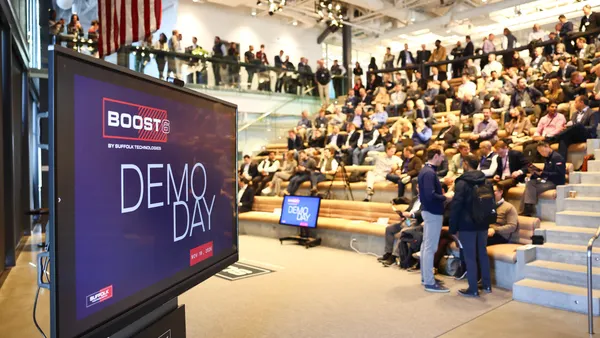Dive Brief:
- As part of its expansion deal with the city of Menlo Park, CA, Facebook will build 1,500 apartment units for the general public, with 15% of those set aside for low-and middle-income households, The Wall Street Journal reported.
- There is no timeline for development or other details available about the new apartments, but Facebook indicated the planned site is currently home to industrial buildings.
- In an effort to gain Menlo Park's approval for a 1.1-million-square-foot expansion of its headquarters, the social media giant is offering the additional housing, in addition to other community benefits, to minimize the impact of an estimated 6,500 new employees.
Dive Insight:
Facebook's move to help address the housing shortage in Silicon Valley could become a trend among tech companies who are growing their operations in the area, according to The Journal.
Housing offerings are a gesture of goodwill, but they're also one of necessity. According to the U.S. Census Bureau and the California Employment Development Department, the Silicon Valley-San Francisco Bay area added more than 380,000 jobs from 2010 to 2015, but building permit data for the market reveal that only 58,000 units were either planned or actually built. This has driven up rents and home purchase prices to near-record levels, turning one-time residents into commuters from cheaper outlying areas.
Earlier this month, Menlo Park city council documents revealed that Facebook had put together a multimillion-dollar package of benefits for the city in exchange for 20-year development rights around its existing campus and a waiver of building height restrictions.
In addition to the 1,500 units of housing, Facebook has agreed to provide $430,000 in rent subsidies for community-based workers like teachers and nurses; a $6.3 million contribution to the city's affordable housing fund; a yearly payment to the city in the amount of $300,000 for 20 years; guaranteed hotel taxes of $1.25 million each year; transportation studies and miscellaneous infrastructure improvements; a $60,000 yearly donation toward the upkeep of a community pool; and $1 million over 10 years for scholarships.













